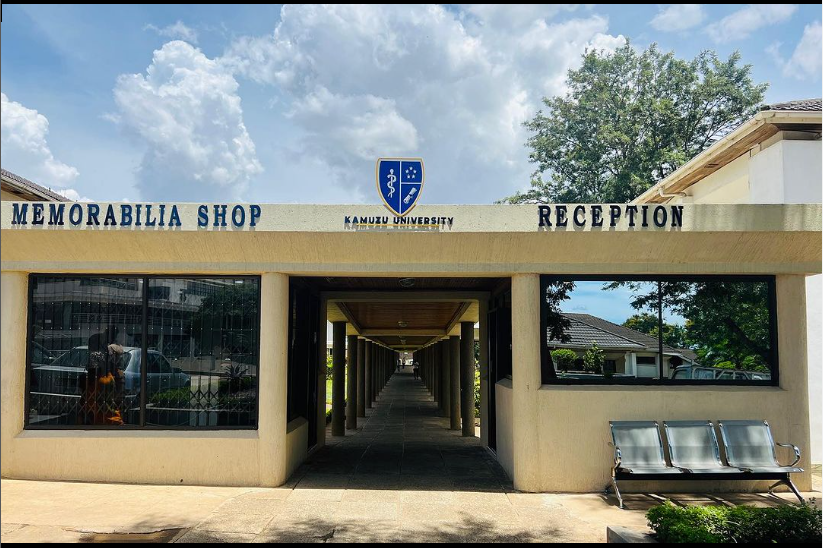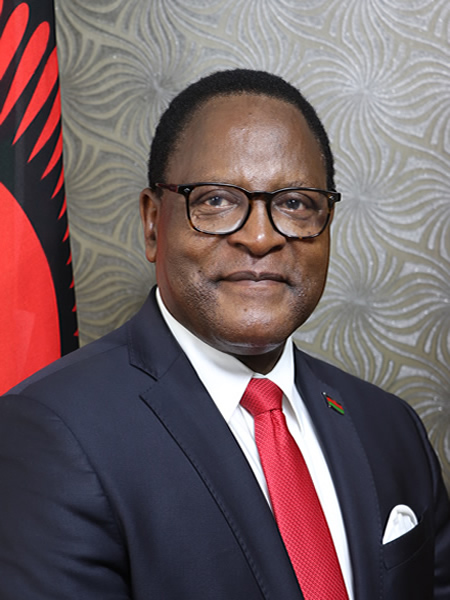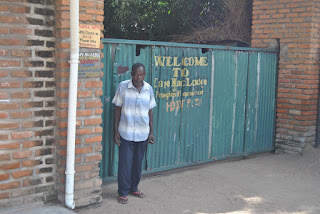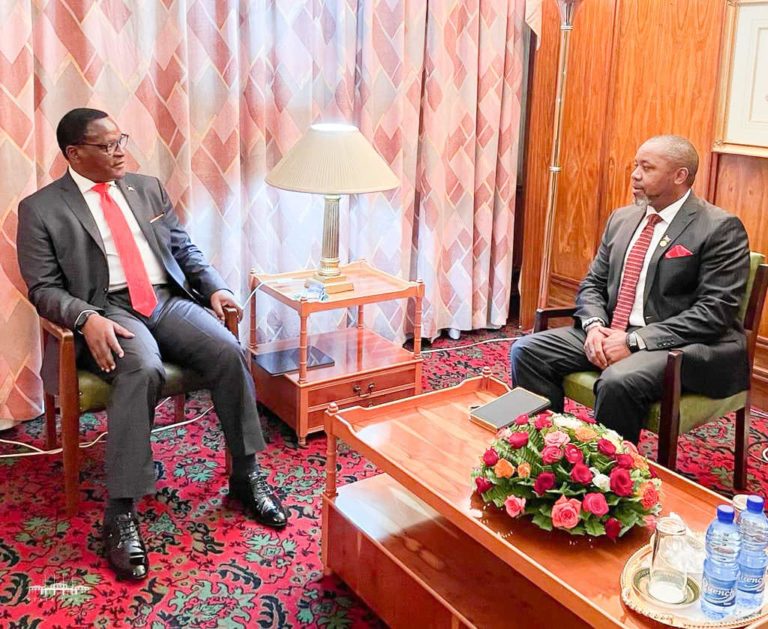
BY JOSEPHINE CHINELE
Richard Mopiha once harboured the dream of graduating from Kamuzu University of Health Sciences (KUHes), formerly College of Medicine, as a medical doctor. His ambition was to save lives, a noble pursuit stemming from his desire to overcome the poverty of his upbringing.
Today, however, the name of the college evokes a day-long unrest in him, a lingering effect of his distressing memories and his ultimate, disheartening exit from the institution.
Mopiha’s tenure at KUHes was a prolonged struggle. The standard path to a medical degree, a Bachelor of Medicine, Bachelor of Surgery (MBBS), typically spans five years. Mopiha, however, remained at the university for eight years, his dream of erasing poverty’s grip unfulfilled.
He left the corridors of Kuhes without the coveted MBBS degree, having been ‘weeded out’ – a term used in university circles to describe students dismissed on academic grounds.
His story is part of a larger narrative.
From 2018 to 2020, KUHes withdrew 19 students, including Mopiha, for academic reasons. Yet, some of these students, in conversations with the Platform for Investigative Journalism (PIJ), insinuate that factors beyond academic performance played a role in their withdrawal.
Allegations of Systemic Flaws and Abusive Practices at KuHes
Students from KUHes are raising concerns about what they perceive as systemic issues within the institution.
They allege these problems not only hinder but actively disadvantage students.
Furthermore, they bring to light claims of abusive faculty members who seemingly take pleasure in the withdrawal of students.

PIJ reviewed academic transcripts from several students, covering a significant portion of their academic journey at KUHes. These transcripts, as per the students’ interpretation, showcase a pattern of high academic performance that abruptly changes, particularly for those in the MBBS program, culminating in their withdrawal in the final year.
The students interviewed by PIJ uniformly assert that their withdrawal, officially attributed to academic reasons, was in fact rooted in problematic interpersonal dynamics with certain faculty members.
An examination of KUHes’s academic withdrawal statistics from 2017 to 2022 reveals a telling trend.
Out of 157 students withdrawn during this period, 77 were from the MBBS program, accounting for nearly 49 percent of all withdrawals.
This disproportionate representation of MBBS students in the withdrawal statistics is raising questions about the underlying causes.
Further Allegations and Statistical Discrepancies in MBBS Program
PIJ encountered a case involving alleged faculty misconduct at KUHes where students specifically accused a prominent faculty member of behaviour that they believe led to their academic withdrawal.

Mopiha, claims that the then Head of the Internal Medicine Department, Dr. Jane Mallewa, harboured a personal animosity towards him. Despite his attempts to resolve the issue through university channels, Mopiha found no resolution. (Dr. Mallewa has denied these allegations.)

This claim is not isolated. Several students corroborate Mopiha’s account, indicating a pattern that warrants further examination.
A review of the university’s performance reports reveals a concerning trend within the MBBS program, particularly in the Senior Clerkship in Internal Medicine.
Between 2018 and 2021, five students failed this segment, a number significantly higher than in any other department of the program. There were 81 failures in the Senior Clerkship in Internal Medicine.
By comparison, the Integrated Paper saw 58 failures, while the Senior Clerkships in Paediatrics and Child Health, Obstetrics and Gynaecology, and Surgery recorded 10, 9, and 28 failures, respectively. These statistics raise questions about the disparity in academic outcomes across different departments of the MBBS program.
Members of Faculty and Former Students Collaborate
PIJ also independently interviewed some members of faculty and former students who collaborated with the withdrawn students’ allegations of an abusive culture in the department.
Staff members also officially raised a complaint against Dr Mallewa’s alleged abusive behaviour, and following the complaint, she was allegedly replaced by Dr Thandi Mwalukomo, according to sources at the university.

Among others, Mopiha told PIJ that Dr Mallewa mentally tortured him several times in front of other students and lecturers.
According to May 2023 Court documents PIJ has seen, in the 2020/21 academic year, during the internal medicine rotation, Mopiha reportedly withdrew upon a school recommendation following a mental breakdown (he reportedly had suicidal thoughts). He attributes the meltdown to Dr Mallewa’s ‘bullying’.
Mopiha claims the senior lecturer stopped him from making a continuous assessment presentation, citing as an excuse that Mopiha had not completed paying his tuition fees. When Mopiha reportedly furnished the lecturer with a receipt as evidence of payment, the lecturer called it fake without presenting any evidence.
Continued Challenges and Disputes Over Academic Processes
In a detailed account to PIJ, Richard Mopiha recounted a distressing incident involving Dr. Jane Mallewa and Dr. Thandi Mwalukomo.
“At one point, she and Dr. Thandi Mwalukomo summoned my colleague Prince Goliath and me to her office. They shouted at us, calling us arrogant. They didn’t explain why they called us arrogant, but they told us they have no mercy regarding failing students. Both of us failed and were withdrawn under questionable circumstances in the form of academic withdrawals,” he explained.
(Both Dr. Mallewa and Dr. Mwalukomo have rejected this version of events.)
In addition to the emotional challenges, Mopiha also faced financial difficulties.
Coming from an impoverished background, he struggled to afford tuition and essential study materials like a laptop. Generous support came from well-wishers, including some university lecturers, who paid his tuition.
Following a break due to his mental health crisis, Mopiha returned to campus and passed an integrated exam. However, he claims that he was only awarded 42 per cent. When he inquired about this, he was allegedly told that his other grades were lost, necessitating a repeat of the year.
Facing financial constraints, he took a year off and returned in the 2020/21 academic year, only to find his name and results missing from a crucial assignment list.
Mopiha further alleges that his other exam papers were only partially marked, resulting in a final grade of 47 per cent. According to university regulations, this grade meant failure and subsequent withdrawal.
He took formal action, writing to the University of Malawi (Unima), the main administrative body of the university, appealing against his examination results. However, in a response dated April 14, 2022, the university, through its Registrar, Towela Mwathunga, informed him that candidates repeating a year are not eligible for supplementary examinations.
More Tales of Student Experiences at KuHes
Prince Goliath, once a high-achieving student with 10 points in his Malawi School Certificate of Education (MSCE) examinations, also faced academic withdrawal in his fourth year at KUHes. Goliath attributes his dismissal to a strained relationship with Dr. Jane Mallewa, citing verbal confrontations that escalated prior to his withdrawal. He recalls being criticized during classroom presentations, a crucial part of continuous assessment.
‘Anonymous Doctor 1,’ a former student who chose to remain unnamed, shared his academic transcript with PIJ, reflecting an impressive 11 points at the MSCE level. He squarely blames his unfortunate departure from KUHes on Dr. Mallewa, describing her as “abusive and scary” and characterizing the environment as hostile for students.
“I personally don’t blame myself. I don’t regret going to Medicine School… Just that one’s future is in the lecturers’ pockets. Some people have a lot of power; if the supervisor says you will fail, you fail. I have numerous examples of this, and everyone else will say the same things,” he recounted, echoing Mopiha’s sentiments of trauma.
In another case, ‘Anonymous Doctor 2,’ who was also withdrawn on academic grounds, reported being denied access to his marked results upon request.
Trying the Legal Route
Richard Mopiha has taken his grievances to court, with the case yet to be decided.
Dr. Richard Nhlane’s academic journey was nearly derailed, but legal intervention provided a lifeline.
In September last year, the High Court in Lilongwe granted an injunction allowing Nhlane, a Master of Medicine Programme student and Assistant Lecturer in the medicine department, to sit for his final exams.
Despite being a postgraduate student since 2017 and facing numerous delays, Nhlane’s contract renewal hinged on obtaining this qualification.
Court documents reveal he underwent a six-month remedial trial based on unfounded allegations, later cleared in a disciplinary hearing in April 2022.
Notably, the disciplinary committee found Nhlane not guilty of the charges presented by Dr. Mallewa.
Following this, the Vice Chancellor, who is Dr. Mallewa’s husband, directed Nhlane to continue his studies at the Lilongwe campus with impartial and neutral academic staff. Nhlane’s case remains in court.
Discrepancies and Concerns Raised in KUHes’ Academic Procedures

Court documents related to Dr. Richard Nhlane’s case reveal additional challenges he faced at KUHes.
On three separate occasions, he was issued warnings without evidence of wrongdoing and without the opportunity to present his side of the story.
The documents also highlight Nhlane’s claims of verbal, written, intimidating, and shaming treatment, along with exclusion from certain work activities and non-renewal of his contract. Nhlane attributes these issues to Dr. Jane Mallewa. (Dr. Mallewa denies all the accusations.)
Alert Dzuka’s experience with the MBBS program raises questions about grading practices. After being withdrawn in 2022, Dzuka challenged his grades, suspecting manipulation.
His appeal led to the revelation of three different grades for the same paper: initially 42 per cent, then corrected to 50 per cent, and later to 47 per cent by Unima. A further communication from Unima Registrar Towela Mwathunga in October 2023 stated all three grades were incorrect due to a failure to consider standard set scores.
Dzuka expressed his frustration: “In essence, they have told me three different results of a single paper. Obviously, the third results, too, are likely to be wrong; surely, they have made wrong calculations!” he said.
Among the withdrawn students were clinical officers and armed forces members seeking to upgrade their education.
One clinical officer, a diploma holder from Malawi College of Health Sciences, mentioned friction with Dr. Mallewa due to his professional background.
Similarly, an armed forces member recounted condescending attitudes from some lecturers, including a remark about bringing guns to medical wards.
Dr. Mallewa’s Pivotal Decisions and Her Stand
As Head of the Department, Dr. Mallewa’s role is pivotal in academic decisions.
Many withdrawn students attribute the end of their academic careers to what they perceive as her bad temperament and personalization of assessments.
However, Dr. Mallewa refutes these claims.
“I was the head. I would have signed for those results, but I hardly remember any of those guys because there was nothing personal. They went through the university system; their results were discussed in the system all the way to the Senate, which made the final decision. If they are going to accuse anybody, they have to accuse the senate,” she stated in an interview.
Dr. Mallewa’s Perspective and the Stringency in Medical Training
Dr. Jane Mallewa acknowledges that some students may attribute their academic struggles to her direct approach. She notes that withdrawals have occurred even after she ceased being the head of the department, although PIJ was unable to obtain a detailed list of these cases.
“At the department level, it’s the head of the department that provides warning letters and guides students that are struggling,” she explained.
Dr. Mallewa also cautioned PIJ about potential legal action in response to publishing student allegations.
However, some of these allegations have been echoed in court documents. PIJ has chosen to report other accusations with due context, considering the public interest in publicly funded higher education matters.
Dr. Mallewa justifies the stringent standards in the Department of Medicine, emphasizing the critical nature of medical training.
“The department of medicine is so stringent. You have to understand that these people are going to be doctors… Any mistake they make, people will die, and they will never come back,” she stated.
She emphasized the department’s commitment to thorough training: “We are not going to apologise for being stringent because what we want is to have our graduates happily treat the Malawian patients.”

Dr. Thandi Mwalukomo, who was also accused of mistreatment by a student, clarified her role as mainly assisting in program coordination without personal biases.
“I never told students anything from my personal view. My responsibility has been providing feedback on MBBS five students’ performance after the assessment. Communicating to them on behalf of the department,” she stated before indicating her unwillingness to comment further without legal or administrative presence.
The Arduous Journey Beyond KuHes for Withdrawn Students
Many students who were withdrawn from KUHes have not abandoned their dreams of a medical career.
They have journeyed to countries like Zambia, Tanzania, Kenya, and Uganda to pursue their medical qualifications. Some have successfully graduated and returned to Malawi, where they are competently employed in public hospitals, according to the Medical Council of Malawi.
For these students, the path to becoming qualified doctors is fraught with loneliness, jeopardy, and heartbreak, akin to years in the wilderness. While some repeated academic years or sought education abroad, others joined the medical school after spending a year at other constituent colleges of the former University of Malawi, now studying different disciplines.
Students fortunate enough to continue their medical studies in Zambian universities typically join in the 5th year and study for an additional three years.
This extended journey means some students spend ten or more years attaining their MBBS degree.
According to Henry Chukambili, Chairperson of the Union of Malawian Students in Zambia, there are currently 19 Malawian students in Zambian universities who were previously withdrawn from KuHes.
Chukambili, a withdrawn KUHes student himself, shared:
“All I know is that since I joined CoM in 2013, I was a hard-working student until I became withdrawn. I was supposed to finish in 2019.”
He questions the fairness of the withdrawals: “If it’s an issue of us (students) not being capable, why is it that when we go to other countries, we are able to finish, and we are able to come back home and practice the same medicine that we were not allowed to practice back home?”
Others, like one student who retook his MCSE exams after being withdrawn from KUHes, eventually got selected to Lilongwe University of Agriculture and Natural Resources (LUANAR).
Chukambili remains determined to become a doctor, motivated by the low doctor-patient ratio in Malawi.
“The Malawi government has already spent a lot of money to train me and other medical doctors that never made it. Surprisingly, the government doesn’t want to intervene in the unusual withdrawals at KUHes. How could students suddenly become dull in their last year of medical training? This is an injustice to the country that needs to be stopped,” Chukambili asserts.
For some, like Goliath, financial constraints hinder the pursuit of medical education abroad. “I’m struggling to make ends meet. I am now just teaching,” said Goliath, echoing the plight of many.
In their quest for justice, withdrawn students have approached various institutions, including the Ministry of Education, the Society of Medical Doctors in Malawi, the Office of the Ombudsman, and the courts. Some of these cases are still pending.

However, the Office of the Ombudsman dismissed one case, and students report feeling let down by the university system and the Ministry of Education, with some fearing reprisals for speaking out.
The Society of Medical Doctors (SMD) initiated an investigation after receiving ten separate complaints. However, the investigation stalled due to the Unima unbundling and the College of Medicine (CoM) transition to KUHes.
Dr. Victor Mithi, President of SMD, stated, “For now, we have one side of the story, so we can’t make a decision based on this until we do further investigations, which are on our desk.”
Funders and curators of student bursaries are also seeking answers.
“We have had many of our scholarship recipients withdrawn. It’s been difficult for us to determine what exactly happens, but we have heard so many stories about odd circumstances leading to these withdrawals,” shared one funder, who preferred to remain anonymous.
Institutional Responses and Expert Opinions on KUHes Allegations
The National Council of Higher Learning (NCHE) expressed unawareness of complaints against KuHes.
“If the students can write to us, explaining the matter, if it is within our mandate, we will investigate further and act accordingly. Otherwise, we also know that institutions have systems and processes for handling grievances and student concerns. We wish to encourage them to go through the internal system as that may be a more efficient and effective way of handling the issues,” Dr. Ambumulire Phiri, NCHE Chief Executive Officer, told PIJ.

The Ministry of Education’s spokesperson, Mphatso Nkuonera, stated that while the ministry doesn’t have direct jurisdiction over these matters, it was aware of Mopiha’s complaint before the University of Malawi’s de-linking.
“We also followed the issue in the background with the universities until it was concluded. No influence from the ministry. It is important that you understand that universities have their own governance structures,” Nkuonera explained.
Visakose Kamfozi, President of the KUHes Students Union, advised caution in drawing conclusions, noting that academic withdrawals are a standard part of university education.
“I suspect other students fail because KUHes rules are different from that of other universities,” Kamfozi suggested.
A complaint against the university at the Office of the Ombudsman was dismissed for lacking merit. However, there was a discrepancy when PIJ inquired about registered complaints, with the office’s spokesperson claiming no complaints had been received.
Leading education experts, including Dr. Steve Sharra, call for a critical dialogue on the issues raised by the students.

Dr. Sharra (an Associate professor of education and Dean of the School of Education, Social Sciences, and Technology at Unicaf University Malawi), but speaking in his individual capacity, highlighted accountability challenges in public higher education institutions.
He emphasized the importance of universities addressing legitimate student concerns and strengthening complaint mechanisms.
According to Dr. Sharra, universities should investigate allegations of unfairness or malpractice when evidence is presented. He also noted the lack of a student support and retention culture in some institutions, where individual lecturers have the final say over grades without a peer moderation system.
Dr. Limbani Nsapato, Country Director for Edukans Malawi, echoed these concerns, noting the potential impact of lecturers’ subjective behaviour on students’ performance and future.
He urged for responsibility in performance management systems and called for a review of the system to prevent abuse.
“…We know that the Ministry is not doing enough. It lacks following up on what is happening in the universities and addressing the challenges. There is a need for authorities to do something about this,” Nsapato stated.








.jpeg)

